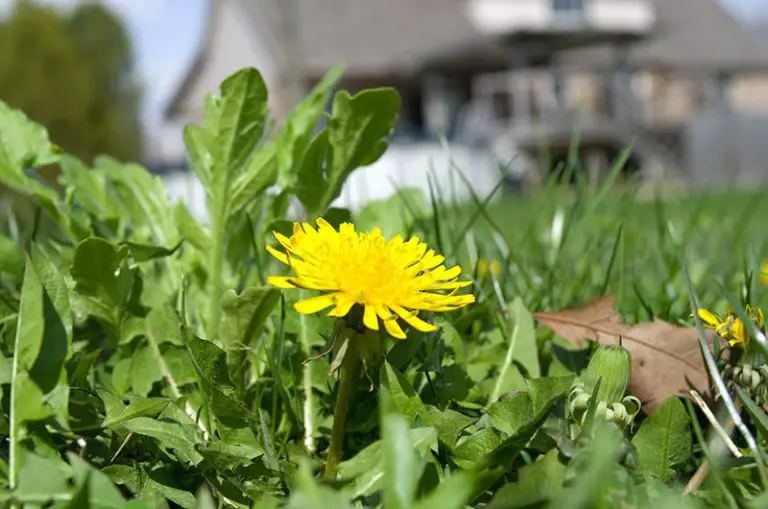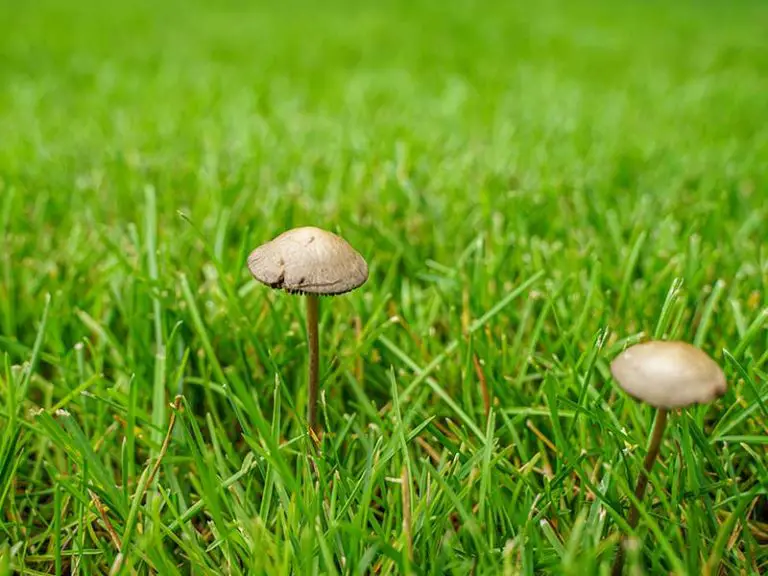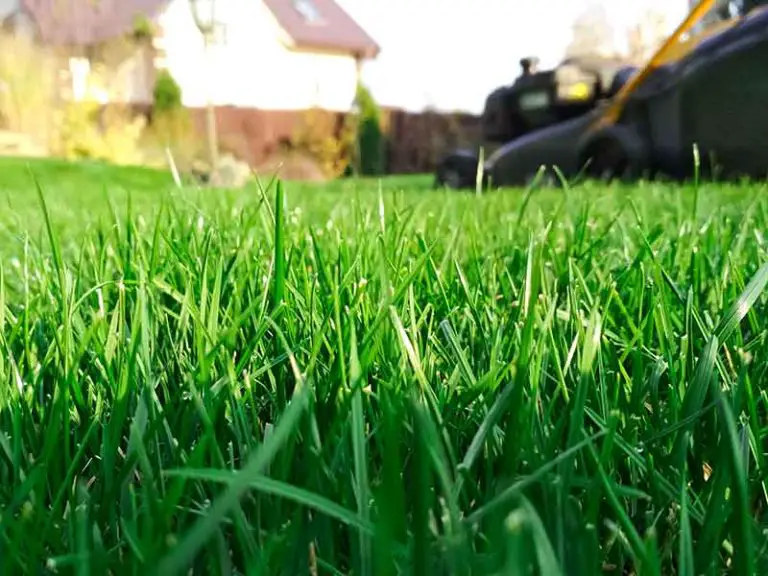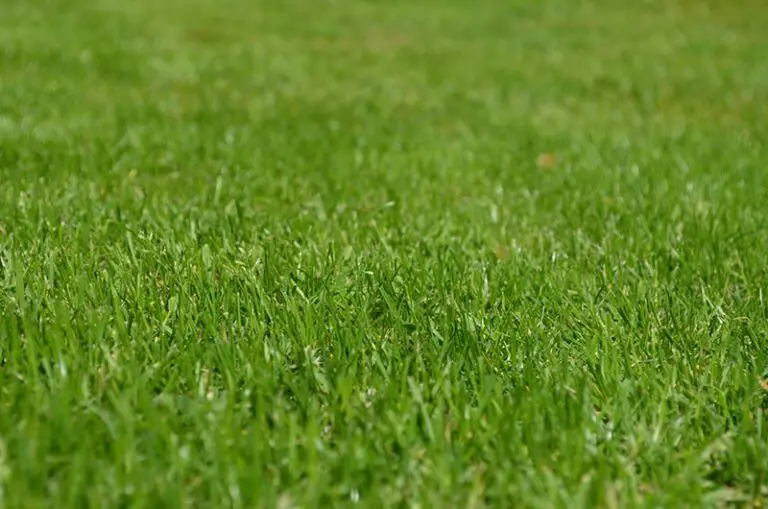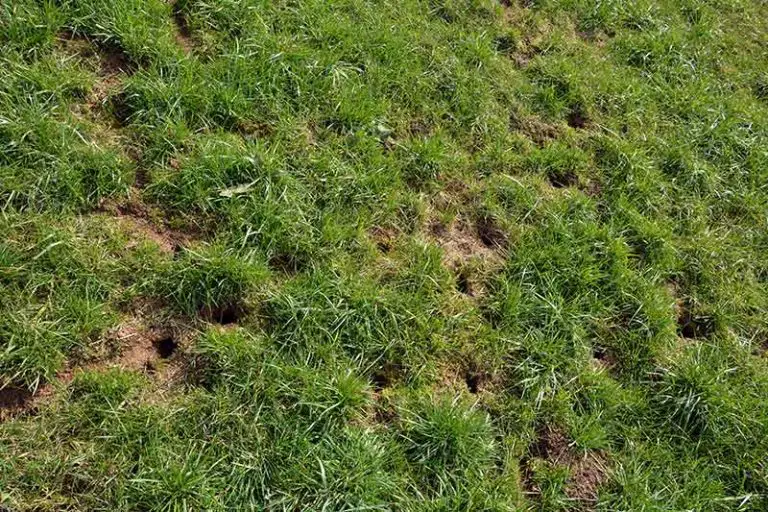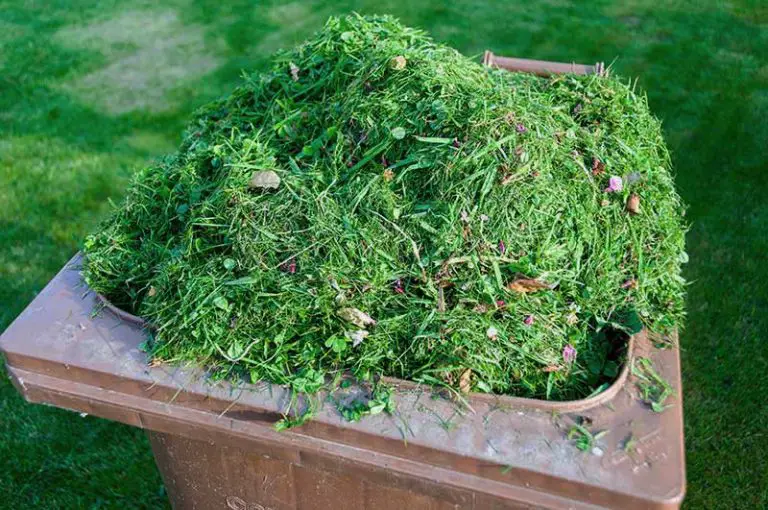Epsom Salt On Lawns
Are you looking for brighter, greener grass to zhoosh up your backyard? Many homesteaders are entirely convinced that Epsom salt is the way to go for a healthy-looking lawn. However, are they telling tales, or do they genuinely have a super easy, cost-effective trick up their sleeve? Let’s see.
Epsom salt consists of micro-nutrients beneficial for your lawn’s health. Epsom salt will generally promote lush, green grass by improving chlorophyll production and photosynthesis. In addition, it can neutralize the soil’s pH, encourage nutrient absorption for your lawn, and deter pests.
To reap the full benefits of adding Epsom salt to your grass, continue reading. Next, we will discuss Epsom salt, why it promotes a healthier-looking lawn, and lastly, the exact “how to’s” to ensure you’re applying it correctly.
When To Apply Epsom Salt To Lawns?
There are many contributing reasons why your lawn may not be a vibrant, healthy, lush green color. Generally, it’s due to the soil lacking nutrition, most notably a lack of nitrogen. Nitrogen deficiencies cause stunted growth and dull green to a yellow hue.
The last two contributing factors include inappropriate sunlight; too little sun will cause the grass to lose its deep green hue. Lastly, pests and diseases affect the color and health of your lawn.
When to Apply Epsom Salt to Lawns:
- In stressful periods: Well, it’s best to use Epsom salt after periods of stress, like brutal winters when the grass needs a booster to revive itself or after a scorching hot summer when your lawn needs to recover and store carbohydrates while preparing for winter. However, you can use Epsom salt on your yard year-round.
- Sandy or acidic soil: Plants, including grass lawns, need magnesium (found in Epsom salt) to allow chlorophyll and photosynthesis to take place. Light sandy or acidic soils tend to lack magnesium supplies from rainfall or irrigation leaching the ground.
- Over-fertilizing: unfortunately, potassium is an opponent of magnesium; heavy potassium fertilizers can reduce the magnesium availability in the soil, causing slow-growing and yellow lawns.
My advice is to conduct a soil test before jumping to conclusions. Soil tests are highly affordable and available in easy-to-use DIY kits. A soil test will indicate whether your soil is too acidic or alkaline, and if it contains excessive potassium or shorts magnesium or sulfur.
What Is Epsom Salt Exactly?
Contrary to belief, Epsom salt is not related to table salt in any way. Table salt consists of sodium chloride, whereas Epsom salt is magnesium and sulfate, a mixture of sulfur and oxygen, chemically composed of 10% magnesium and 13% sulfur.
Epsom salt is an organic compound touted as a safe and natural product full of beneficial minerals for lawns.
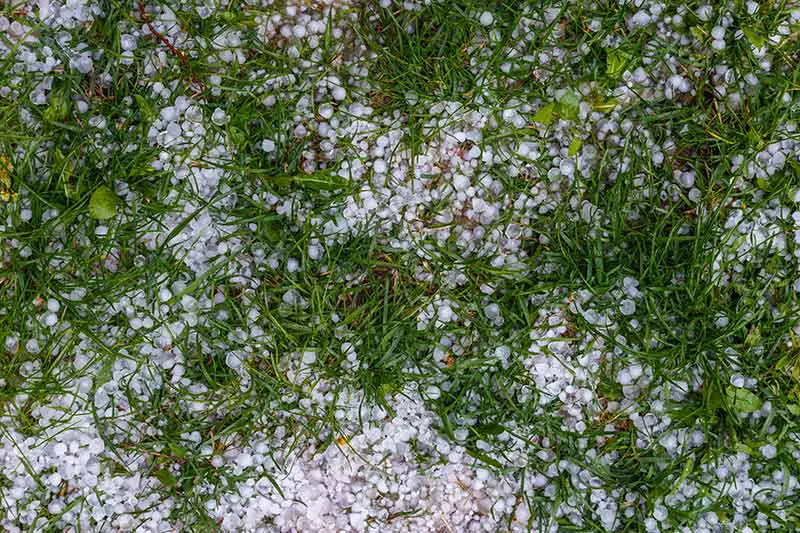
Why Is Epsom Salt Good For Your Lawn?
Epsom salt can increase everything from germination, nutrient absorption, growth, and the general health of lawns and plants.
Epsom salt has the fantastic ability to make your grass greener, encourage nutrient absorption, and neutralize your soil pH. Let’s take a quick look at each benefit.
Iron in Epsom salt helps the grass to grow healthy and strong. Meanwhile, the magnesium found in Epsom salt is of central importance.
Epsom Salt Makes Grass Greener
Magnesium is one of the vital elements found in Epsom salt. Therefore, magnesium salt is of central importance to plants, including grass.
As it turns out, magnesium and sulfur play a vital role in developing chlorophyll production and photosynthesis. So, if a plant has an adequate supply of magnesium, it will encourage photosynthesis and increase chlorophyll.
Sufficient chlorophyll allows the plant (grass) to produce gorgeous dark green foliage. Therefore, magnesium and sulfur equal healthy, greener lawns! Chlorophyll is also crucial for the plant to photosynthesize, enabling it to make food and energy for itself.
Epsom Salt Encourages Nutrient Absorption
Once again, magnesium is the star of the show. Magnesium found in Epsom salt helps plants like grass perform essential functions, including nutrient absorption.
Macronutrients like nitrogen and phosphorus are vital for a plant to thrive. Epsom salt has the fantastic ability to not only supplying magnesium to the grass, but in doing so, it ensures that your lawn absorbs optimum levels of nutrients essential for thriving.
Epsom Salt neutralizes Soil pH
Magnesium generally occurs naturally in soil, with higher ratios in medium-to-heavy soils like loam or clay and less in light, sandy and acidic soils types. Fortunately, magnesium can balance the pH level in your grasses’ soil, preventing that it becomes too acidic.
Work the Epsom salt well into the soil, allowing it to increase the soil’s acidity gradually over time.
On the contrary, sulfur is another vital ingredient in adjusting the soil’s pH if it’s too alkaline; this is because sulfur unlocks the availability of iron to the grassroots by making iron more soluble.
Epsom Salt Deters Pests
Epsom salt can help you to deter garden pests lurking around your lawn, including ants, beetles, slugs, and snails.
The results vary on the concentration and how often you use Epsom salt to repel pests. First, you’ll want to dilute two tablespoons of Epsom salt per gallon of water. Then, directly spray the mixture onto the bugs.
The abrasive texture tends to scratch the skin or exoskeleton of the pest, leading to dehydration and possible death.
Epsom salt is an excellent alternative to using harmful chemicals; however, you should note that it isn’t a full-proof plan and often does not remove all the pests. So, realistically speaking, if you’re specifically looking to treat your pest problem, then Epsom salts should not be your first option.
Can Epsom Salt Be Harmful To Your Lawn?
Adding controlled and small amounts of Epsom salt to your lawn generally won’t cause any harmful side effects. In addition, evidence shows that providing Epsom salt to soil with a magnesium deficiency offers a quick boost for the grass, encouraging growth and health. However, if you’re over-enthusiastic and apply copious amounts of Epsom salt to your lawn, the excess magnesium can leach out into nearby water supplies. In turn, the Epsom salt becomes a pollutant.
Similarly, spraying high concentrations of Epsom salt onto your lawn can cause damage by scorching the grass’s foliage; furthermore, attracting unwanted pests.
So, the kicker is that adding magnesium to a soil that does not have a magnesium deficiency can cause harm and diseases and limit the absorption of calcium and potassium.
Therefore, always opt for a soil test before grabbing hold of the attractive quick-fixing Epsom salt.
Can I Use Epsom Salt To Improve Grass Seed Germination?
Unfortunately, grass seeds can take a considerable long time to grow. In addition, planting grass seed too late in the season can cause poor germination and root development before harsh temperatures hit.
Luckily, germinating grass with a bit of help from our friend Epsom salt can solve these problems. Epsom salt contains magnesium that boosts grass growth by noticeably increasing germination rates.
How to Use Epsom Salt To Improve Grass Seed Germination:
- For best results, submerge the grass seed into diluted Epsom salt before planting the seeds.
- You’ll want to fill a bucket ¾ full of lukewarm water and add a tablespoon of Epsom salt.
- Place the grass seed into an old pillowcase or similar absorbent cloth piece.
- Then, submerge the encased seeds into the Epsom salt mixture for 24 hours.
- Remove the seeds from the water and pillowcase or encasing, and spread them to dry in a cool, dry place.
- Lastly, spread or plant your grass seeds onto your lawn as per usual.
Can You Use Epsom Salt As A Fertilizer For Your Lawn?
Although Epsom salt has impressive benefits for your lawn, it is only a micronutrient. Plants, including grass, depend on these macronutrients to thrive- nitrogen, phosphorus, and potassium.
Unfortunately, Epsom salt contains no traces of nitrogen, phosphorus, or potassium.
Therefore, it’s vital to be aware that even though Epsom salt is full of benefits like magnesium, sulfur, and iron, it should not be used as a substitute for fertilizer. Instead, consider using it as a secondary supplement to boost your lawn’s nutrient absorption, chlorophyll production, and photosynthesis.
You can mix Epsom salt with fertilizer before using it to fertilize your lawn, or you can combine the Epsom salt with water before spraying it onto your grass.
How To Apply Epsom Salt To Your Lawn?
There are a couple of different ways to apply Epsom salt on your lawn, and the ratios generally differ regarding the application method.
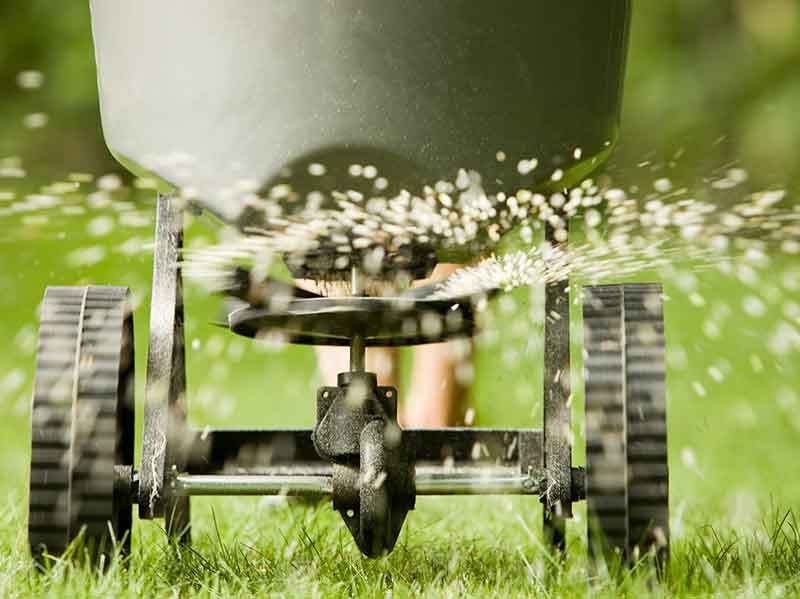
You can either use a spreader to ensure even distribution of the Epsom salt, or dilute the salt into water and spray it on the grass.
When using the spreader, you’ll want to use half a pound of Epsom salt for every 100 square feet of your lawn. Whereas if you plan to dilute the Epsom salt in water, dissolve it in a water ratio as stipulated by the manufacturer’s stipulations, or follow the general recommendation of combining two tablespoons with a gallon of water. Then, use a sprinkler system or garden syringe to spray the lawn with the blend.
Repeat the process every three to four weeks for best results.
Does Epsom Salt Have Other Uses In The Garden?
Aside from using Epsom salt on top of lawns to boost greener, healthier grass, it has additional benefits for your garden.
- Tomatoes and peppers require a high dose of magnesium to thrive. For a greater yield of plumper, sweeter tomatoes and peppers, soak your seedlings in Epsom salt before planting. If your plants are established, you can provide a diluted dose of Epsom salt to their soil.
- Epsom salt is of great use for rose enthusiasts. It will help rose bushes grow more robust and develop dark green foliage with an abundance of vibrant, rich blooms.
- The same applies for evergreen perennials, rhododendrons, and azaleas. Each plant benefits from an Epsom salt helping every third week or so. In addition, Epsom salt discourages yellowing leaves and encourages more prominent flowers.
- In addition, plants like gardenia and bougainvillea generally have bountiful blooms and suffer from magnesium shortages. To combat fewer blooms and dull, yellow foliage, typically dose the plants with Epsom salt.
- Epsom salt can give your garden a jumpstart at the beginning of spring, its growing season. You can add Epsom salt to your garden plants as well as your house potted plants.
- Epsom salt can prevent shock in transplanted pants by soaking the plant in a diluted Epsom salt and water mixture. In addition, Epsom salt can boost the plant’s ability to absorb nutrients from fertilizer.
- Lastly, use Epsom salt in a homemade weed killer by adding two cups of Epsom salt to a tablespoon of liquid dish soap and one gallon of vinegar. Please be careful not to harm your other plants while spraying the weeds.
Pros And Cons Of Epsom Salt
Although Epsom salt has many benefits, making it popular in gardening, it’s not without its critics.
Here are the pros and cons of using Epsom salt on your lawn.
| Pros of Epsom Salt on Lawn | Cons of Epsom Salt on Lawn |
| If your lawn’s soil is deficient in magnesium or sulfur, adding Epsom salt will provide the necessary compounds to boost your soil.Epsom salt contains magnesium and sulfur that can increase chlorophyll production, and photosynthesis improves as well.Epsom salt can neutralize the pH of your lawn.Epsom salt treats soil with excessive amounts of potassium and calciumEpsom salt can increase macronutrient absorption like nitrogen and phosphorus for your grass.Epsom salt can deter tiny pests like slugs and beetles. | Although Epsom salt can boost the quality of your lawn, it only provides short-term results.Using Epsom salt as a fertilizer for your lawn is ineffective as it doesn’t contain vital elements like nitrogen, phosphorus, or potassium.There is little proof that Epson salt can prevent infestations; small rodents are unlike deterred by it.Using excess amounts of Epsom salt may leach magnesium from your lawn into nearby water, contaminating it.If your lawn’s soil is not deficient in sulfur or magnesium, adding Epsom salt may have zero beneficial effects on your yard. |
Conclusion
Epsom salt is a cost-effective and organic way to increase magnesium and sulfur in your lawn’s soil. It contains micronutrients that boost nutrient absorption, neutralize the soil’s pH, and promote chlorophyll production.
However, note it’s best to use a soil test before adding Epsom salt to your soil to prevent excessive amounts of Epsom salt from preventing nutrient absorption and polluting nearby water sources. Nevertheless, the takeaway of Epsom salt is that it is relatively safe and effective, as long as you use it in moderation.

